 Allocation Rule - Involved Party Qualifier and Contact Profile Added
Allocation Rule - Involved Party Qualifier and Contact Profile Added
This feature adds additional criteria, Involved Party Qualifier and Contact Profile - to the Allocation Rule, allowing you to further refine the Allocation Rule that will be used/matched when the Allocate Cost action is run. You will find this feature particularly useful is any setup where you have configured a shared service for your customers in a single domain, and your customers require different criteria for allocation - e.g., allocate by weight or distance or volume.
In the Allocation Rule UI below, the new Involved Party Qualifier and Contact Profile fields are shown. This allows you to define a specific Involved Party Qualifier and Contract Profile that will be used for matching the Allocation Rule when the Allocation Cost action is run. You can use the combination of Involved Party Qualifier and Contact Profile to easily setup Allocation Rues that can apply to one or many of your customers in your shared domain.
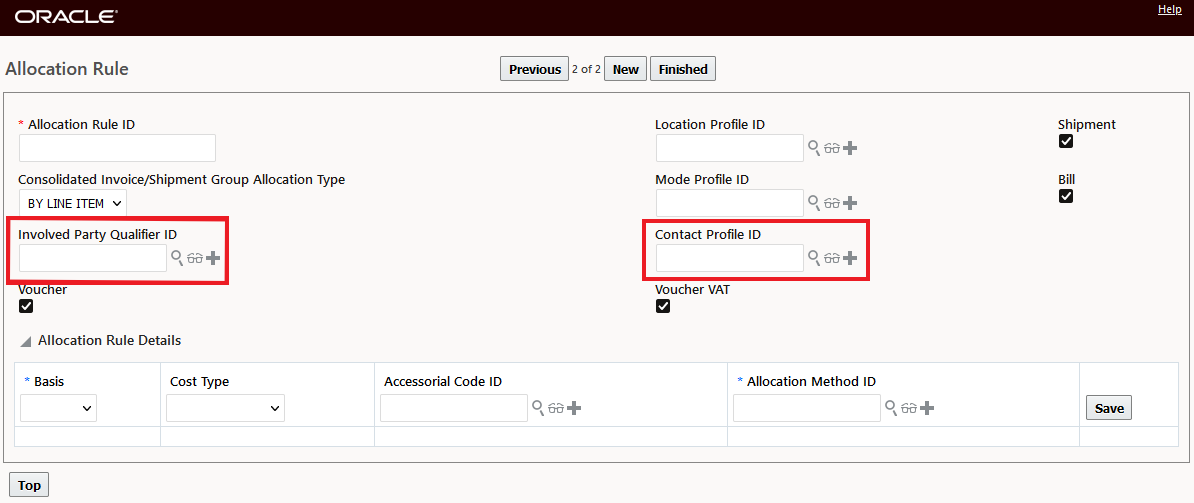
Allocation Rule UI - Involved Party Qualifier and Contact Profile Added
In the example below, there is an Allocation Rule Profile with three different Allocation Rules defined. Two of the assigned rules are defined for a specific Involved Party Qualifier and Contract Profile, the third Allocation Rule, does not have the Involved Party Qualifier or Contact Profile criteria defined.

Allocation Rule Profile
The first Allocation Rule - 24B Involved_Party01 is shown below. This Allocation Rule will match when the Involved Party Qualifier is set to Shipper and the Contact ID matches the contacts included in the Customerlist01 Contract Profile.
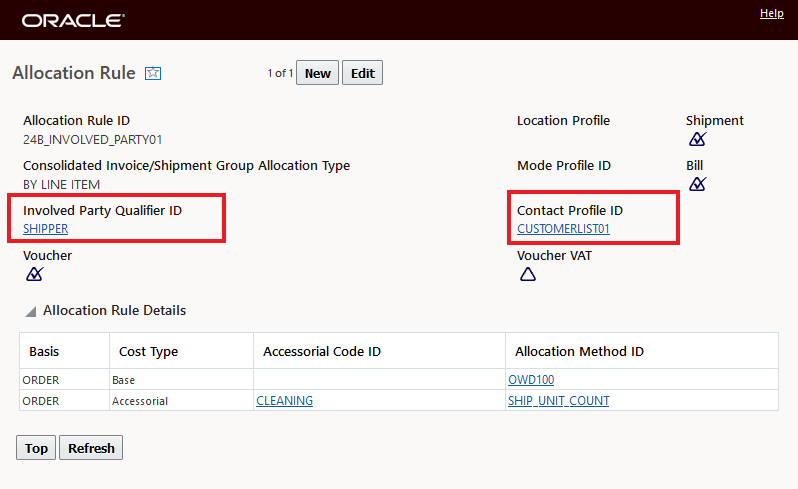
Example Allocation Rule Number 1
The Customerlist01 Contact Profile Details are shown below.
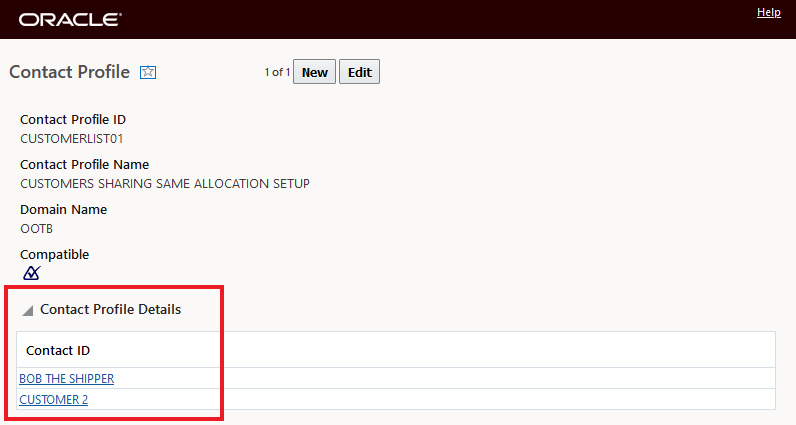
Contact Profile Details
In the shipment below, the Involved Party of Qualifier of Shipper and Contact (Bob The Shipper)) match the criteria specified for in the Allocation Rule = 24B_Involved_Party01 - described above.
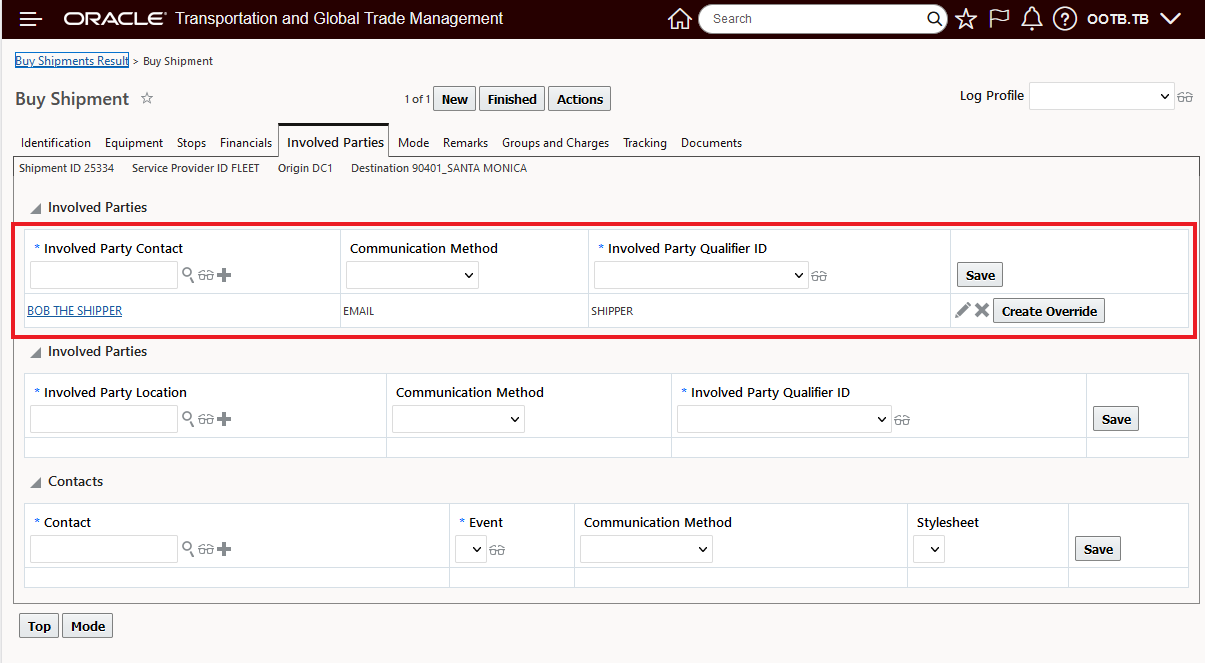
Allocation Rule Matching Involved Party Qualifier and Contact Information on Example Shipment
When the action Allocate Cost is run against this shipment, the 24B_Involved_Party01 is used to perform the allocation, as shown below for the two orders on the shipment. The total cost allocated is 588.74 USD.
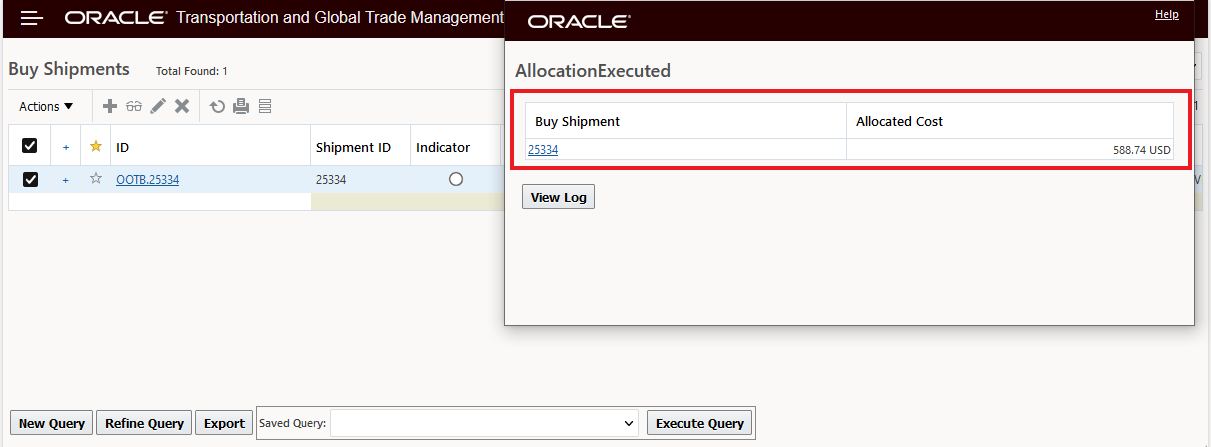
Allocate Cost Action Run
For the first order, 40,000.00 LB the cost allocation is - using the matched - 573.06 USD, as shown below.
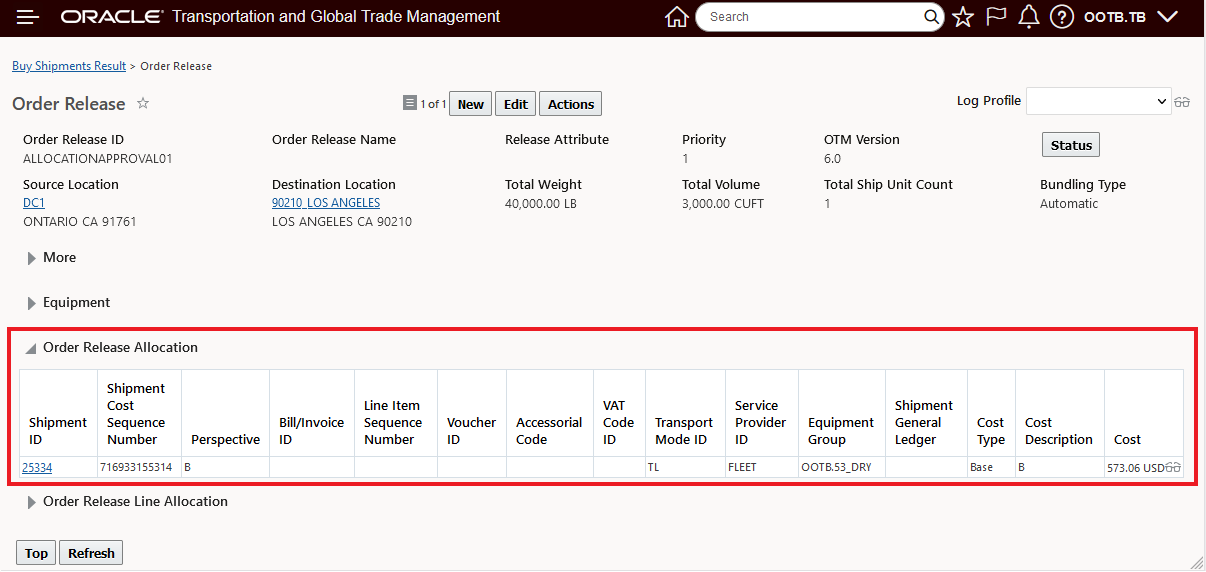
Allocated Cost for the First Order Using 24B_involved_party01 Allocation Rule
For the second order of 1,000.00 LB the cost allocation amount is 15.68 USD.
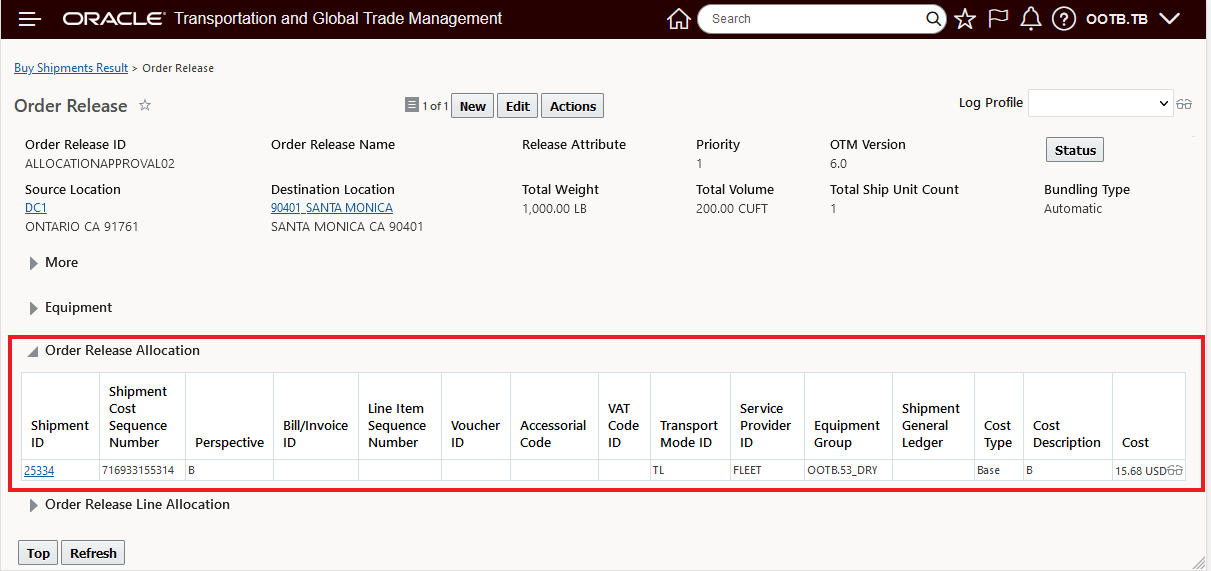
Allocate Cost for the Second Order using 24B_involved_party01 Allocation Rule
In the example below the same shipment as above will be allocated, but the Involved Party on the shipment will change so that the Allocation Rule 24B_Involved_Party02 will be the matching Allocation Rule.
The 24B_Involved_Party02 allocation rule is shown below. For this Allocation Rule the Involved Party Qualifier is Logistics and the Contact Profile list is Shipuntcountcustomers.
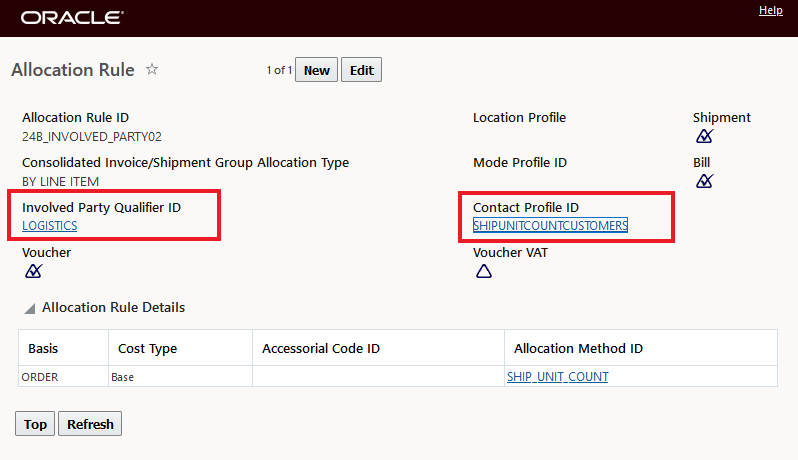
Example Allocation Rule Number 2
The Contact Profile details for the 24B_Involved_Party02 Allocation Rule is below.
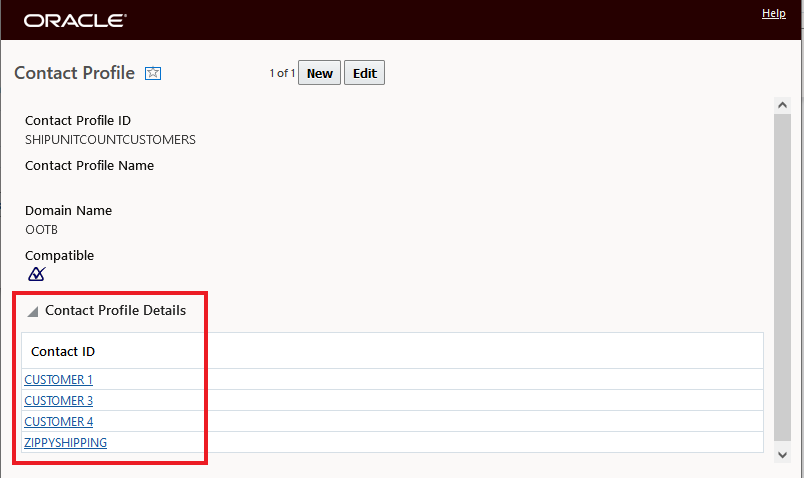
Contact Profile Details
As noted above, for this example the, Involved Party Contact and Qualifier for the shipment has been changed to match the criteria for the 24B_Involved_Party02 Allocation Rule.
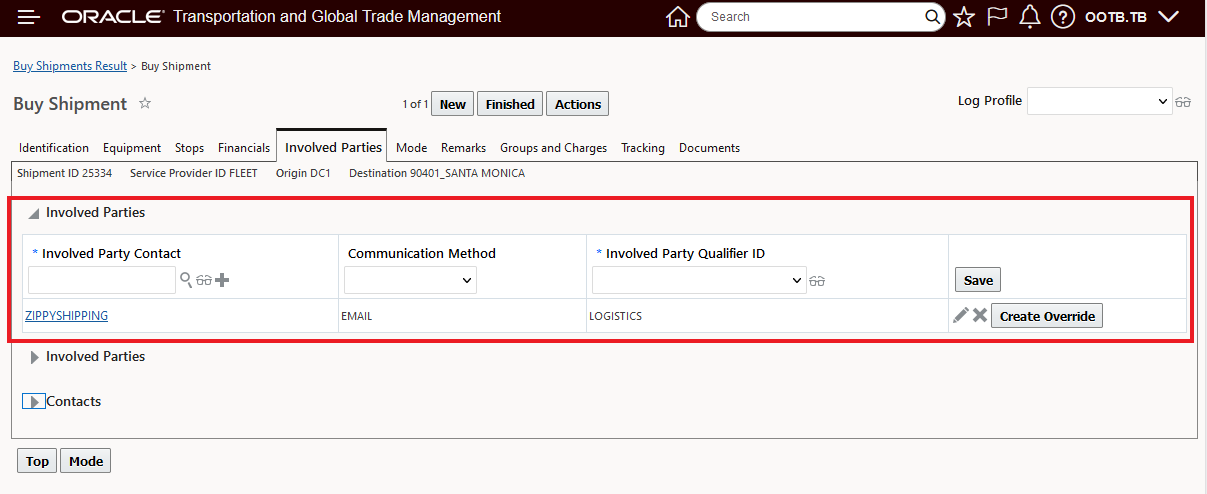
Allocation Rule Matching Involved Party Qualifier and Contact Information on Example Shipment
As before, when the Allocate Cost action is run against this shipment, the total cost allocated is 588.74 USD and the 24B_Involved_Party02 is used to perform the allocation to the two order releases. In this example, the cost will be split evenly between the two order release since the 24B_Involved_Party02 Allocation Rule is based on Ship Unit Count and each of the order releases has 1 ship unit.
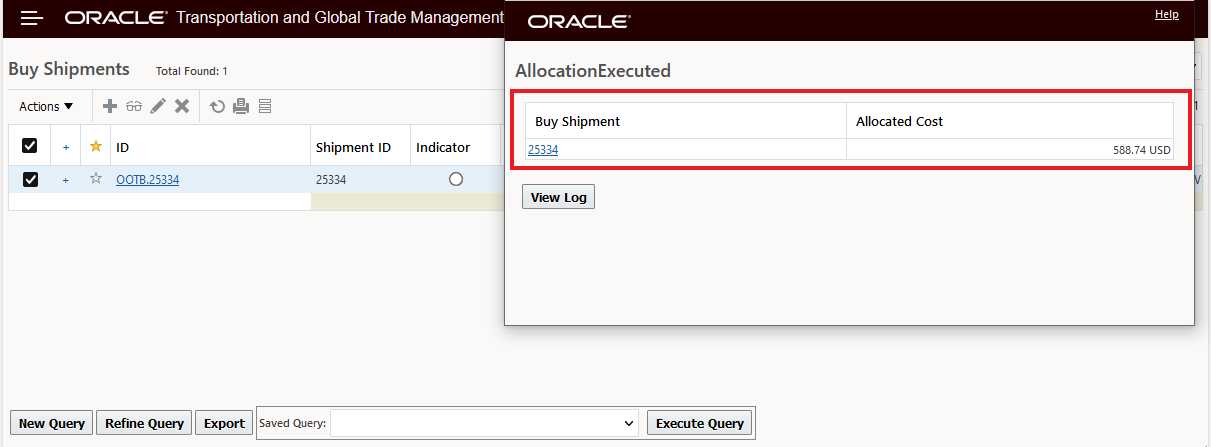
Allocate Cost Action Run
For the first order, the allocated cost is 294.37 USD, based on the 24B_Involved_Party02 Allocation Rule.
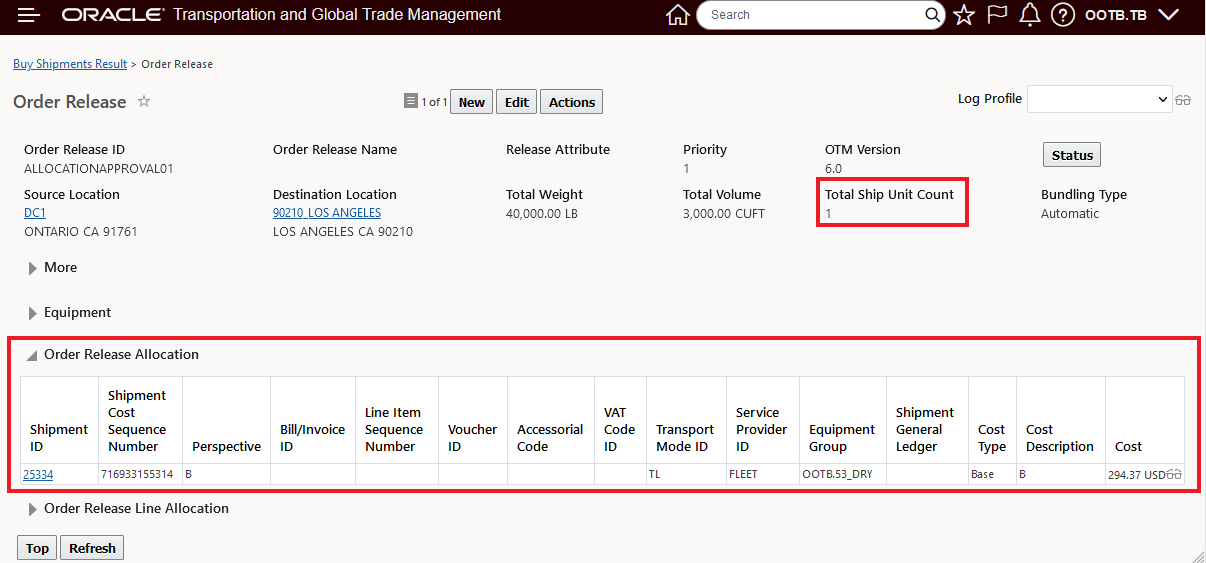
Allocated Cost for the First Order Using 24B_involved_party02 Allocation Rule
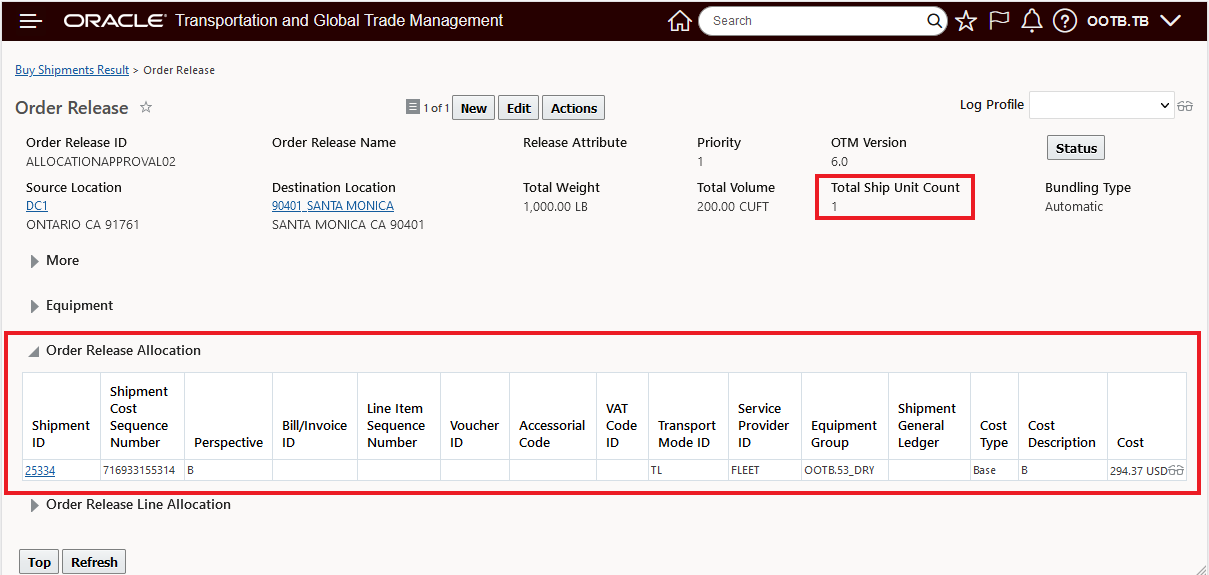
Allocated Cost for the Second Order Using 24B_involved_party02 Allocation Rule
For the second order, the allocated cost is the same as above, 294.37 USD, which is provided by the matching 24B_Involved_Party02 Allocation Rule which is allocating cost based on Ship Unit Count.
In the final example below, the shipment does not match to any of the Allocation Rules that match based Involved Party Qualifier and Contact. In this case, the order release will be allocated using the Standard Allocation No IP Allocation Rule shown below.
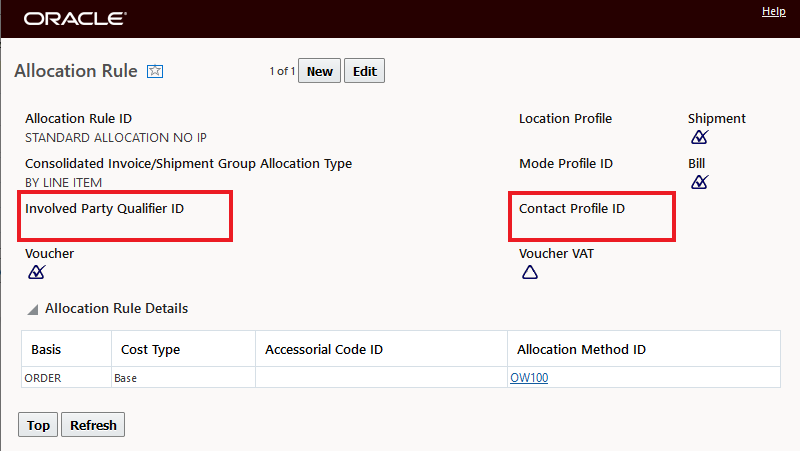
Allocation Rule Without Any Involved Party Qualifier or Contact Criteria
As before, when the Allocate Cost action is run against this shipment, the total cost allocated is 588.74 USD. In this case the Standard Allocation No IP Allocation Rule is used to perform the allocation to the two order releases.
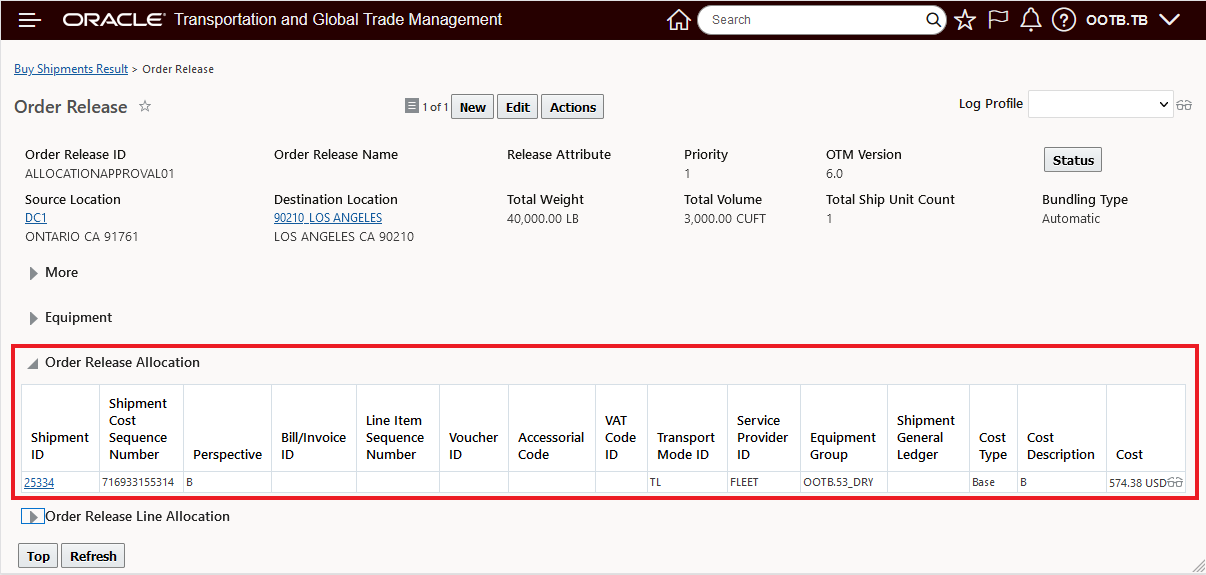
Allocated Cost for the First Order Using Standard Allocation No IP Allocation Rule
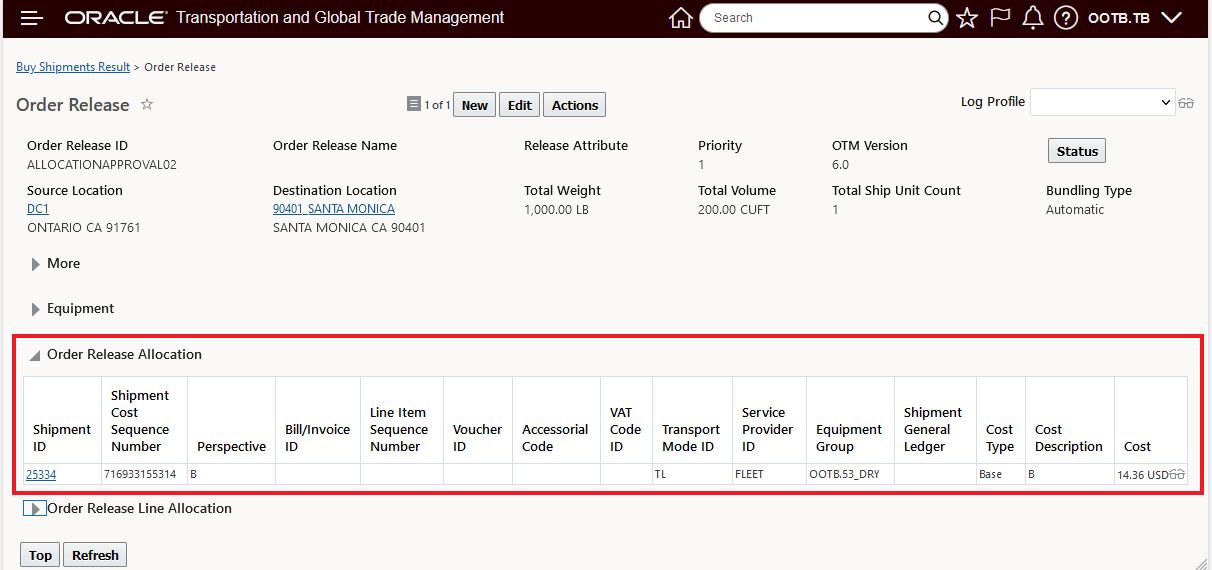
Allocated Cost for the Second Order Using Standard Allocation No IP Allocation Rule
You will find this feature particularly beneficial in situations where you are performing managed services for many of your customers in a shared domain, and one of those shared services involves cost allocation with Allocation Rules that are different for different customers/sets of customer all in the one shared domain.
Steps to Enable
You will need to either modify or create new Allocation Rule that include the new Allocation Rule criteria provided by this feature - specifically Involved Party Qualifier and Contact Profile.
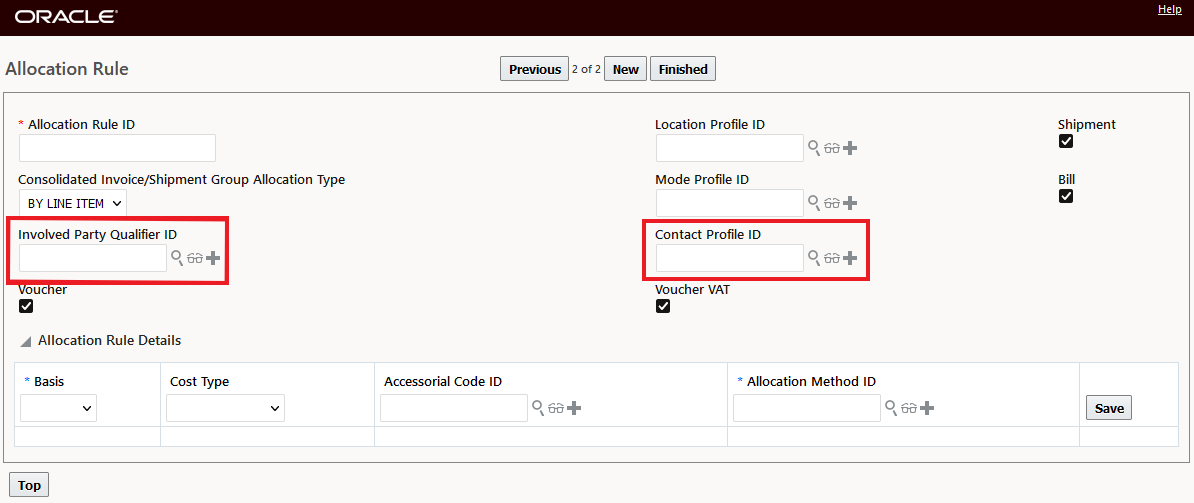
New Allocation Rule Criteria Provided with This Feature